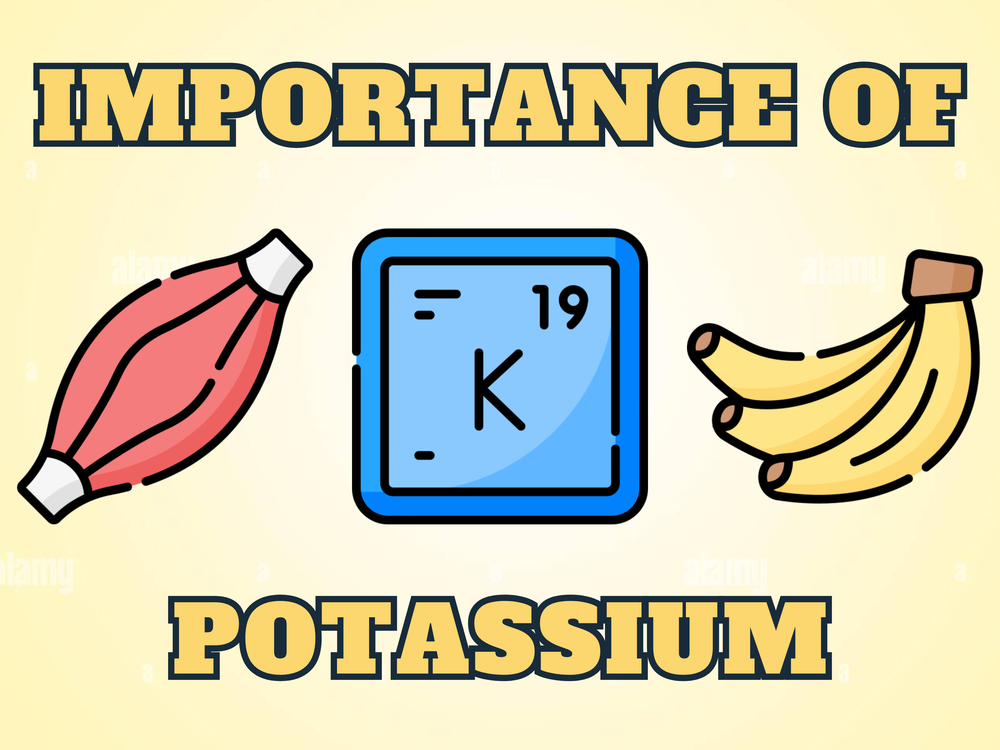
Introduction
Potassium (K) an important micronutrient that can be consumed in more than just bananas; both from many other foods and as a supplement. It is only of the four micronutrients that's required to be on a nutrition facts label, along with iron, calcium, and vitamin D.
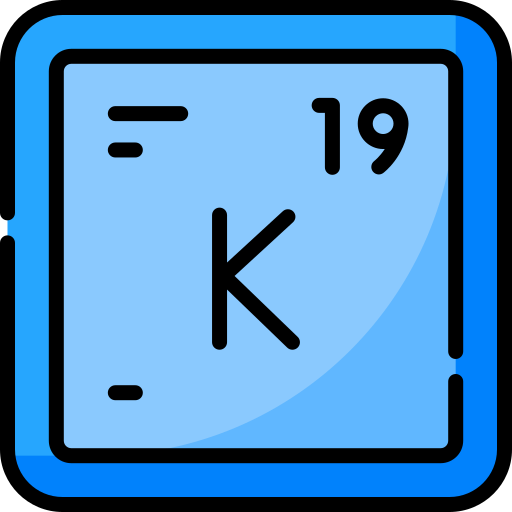
Along with sodium and magnesium, potassium is a critical electrolyte for your body. Often lost during sweating, as well as through urine, potassium plays a vital role in fluid balance, preventing muscle cramps, and maintaining nervous system function.

High Potassium Foods

Why Do You Need Potassium?
The main role of potassium in the body is for balancing your body's fluids. As you may know, most of the body is made up of water. Of this water, about 60% of it is found within the cells of your body, known as Intracellular Fluid, or ICF. The remaining 40% is then referred to as Extracellular Fluid, or ECF.

The main electrolyte found within ICF is, you guessed it, potassium. On the other hand, the main electrolyte in ECF is sodium. Both potassium and sodium need to be consumed in adequate quantities; not too much or too little. Being out of balance can lead to swelling or shrinking of cells. This fluid imbalance is what causes dehydration, and can also lead to muscle cramps or inefficiencies, as well as heart and kidney problems.

Moreover, potassium plays a vital role in the nervous system, such as hormone release, muscle contraction, reflexes, and heart function. Potassium also relaxes the walls of the blood vessels and flushes out excess sodium in the body, lowering blood pressure and decreasing risk of heart attack and stroke. Potassium also preserves the body's calcium, helping prevent osteoporosis, as well as aiding in nutrient transfer into the cells and clearing waste out of cells.

Benefits of Potassium
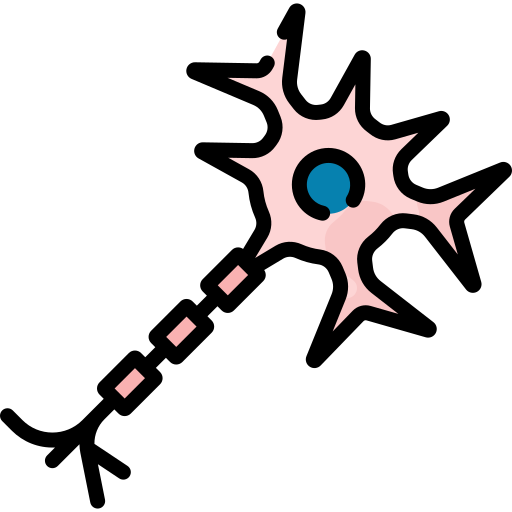
Symptoms of Potassium Deficiency (Hypokalemia)

Daily Consumption

Foods High In Potassium
Meat (raw)

Fish and Seafood (Raw unless specified)

Beans (dried)

Vegetables (Raw)

Fruit

Nuts

Seeds

Grains (Raw)

Dairy

Other
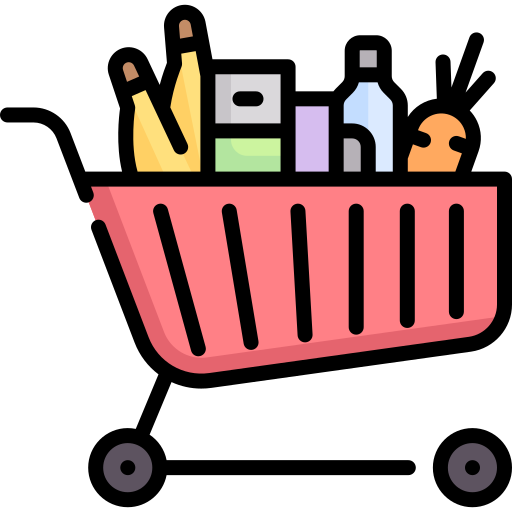
Best Sources of Potassium
Per serving: Soybeans - 898.5 mg (1/4 cup, 50 g)
Per 100 g: Soybeans - 1,797.0 mg
Per 100 cal: Beet Greens - 3,463.3 mg
Wrapping it Up
I bet you think potassium and think bananas, right? Potassium is an essential electrolyte that's fairly dense in bananas, but is actually higher in other foods like avocado and potatoes. Potassium aids in regulating your blood pressure and fluid balance, as well as improving heart, bone, and muscle health and function. Additionally, potassium helps in kidney function, helping to regulate and produce waste. The recommended amount for potassium is 4,700 mg per day, and deficiencies can lead to kidney stones, muscle cramps, osteoporosis, and hypertension.
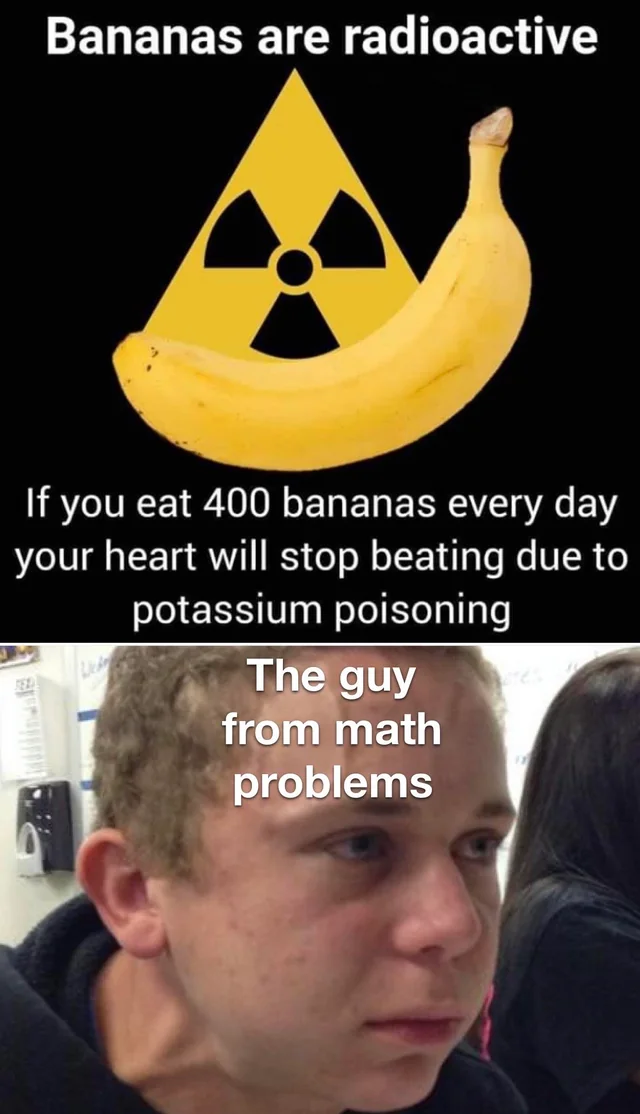
Benefits


Sources
This post may contain affiliate links
Potassium (K) an important micronutrient that can be consumed in more than just bananas; both from many other foods and as a supplement. It is only of the four micronutrients that's required to be on a nutrition facts label, along with iron, calcium, and vitamin D.

Along with sodium and magnesium, potassium is a critical electrolyte for your body. Often lost during sweating, as well as through urine, potassium plays a vital role in fluid balance, preventing muscle cramps, and maintaining nervous system function.

High Potassium Foods

Why Do You Need Potassium?
The main role of potassium in the body is for balancing your body's fluids. As you may know, most of the body is made up of water. Of this water, about 60% of it is found within the cells of your body, known as Intracellular Fluid, or ICF. The remaining 40% is then referred to as Extracellular Fluid, or ECF.

The main electrolyte found within ICF is, you guessed it, potassium. On the other hand, the main electrolyte in ECF is sodium. Both potassium and sodium need to be consumed in adequate quantities; not too much or too little. Being out of balance can lead to swelling or shrinking of cells. This fluid imbalance is what causes dehydration, and can also lead to muscle cramps or inefficiencies, as well as heart and kidney problems.

Moreover, potassium plays a vital role in the nervous system, such as hormone release, muscle contraction, reflexes, and heart function. Potassium also relaxes the walls of the blood vessels and flushes out excess sodium in the body, lowering blood pressure and decreasing risk of heart attack and stroke. Potassium also preserves the body's calcium, helping prevent osteoporosis, as well as aiding in nutrient transfer into the cells and clearing waste out of cells.

Benefits of Potassium
- Maintain fliud balance
- Electrolyte balance
- Flush out excess sodium
- Preserve body's calcium
- Protect against osteoporosis
- Prevent muscle cramps
- Prevent heart and kidney disease
- Lower blood pressure
- Reduce risk of heart attack and stroke
- Relax cell walls
- Transfer nutrients into cells
- Transfer waste out of cells
- Aid in digestion
- Prevent dehydration
- Benefit nervous system function
- Treat hypertension
- Decrease risk of kidney stones
- Improve bone health
- Control blood sugar
- Treat Type 2 Diabetes
- Reduce inflammation
- Improve mental clarity
- Improve insulin sensitivity
- Reduce water retention

Symptoms of Potassium Deficiency (Hypokalemia)
- Malaise (general feeling of discomfort)
- Fatigue
- Muscle weakness
- Muscle cramps
- Constipation
- Numbness
- Tingling
- Difficulty breathing
- High blood pressure
- Chronic Inflammation
- Type 2 Diabetes
- Insulin Resistance
- Metabolic Syndrome
- Brain fog
- Osteoporosis
- Elevated glucose, insulin, and A1C
- Abnormal heart beat
- Stroke
- Heart disease
- Inflammatory Bowel Disease

Daily Consumption
- Daily Value: 4,700 mg
- Optimal Test Range: 3.50 - 5.20 mmol/L
- Note: Absorption rate of potassium is about 90%

Foods High In Potassium
| Food | Serving Size | Potassium Per Serving |
Potassium Per 100 g |
Potassium Per 100 cal |
|---|---|---|---|---|
| Beef Liver | 4 oz (113 g) |
354 mg (8 %) |
313 mg (7 %) |
232 mg (5 %) |
| Chicken Breast (Boneless & Skinless) |
4 oz (113 g) |
377 mg (8 %) |
334 mg (7 %) |
278 mg (6 %) |
| Ground Beef (93% Lean) |
4 oz (113 g) |
380 mg (8 %) |
336 mg (7 %) |
221 mg (5 %) |
| Pork Tenderloin | 4 oz (113 g) |
451 mg (9 %) |
399 mg (8 %) |
366 mg (7 %) |

Fish and Seafood (Raw unless specified)
| Food | Serving Size | Potassium Per Serving |
Potassium Per 100 g |
Potassium Per 100 cal |
|---|---|---|---|---|
| Anchovies (Canned) |
1.6 oz (45 g) |
245 mg (5 %) |
544 mg (12 %) |
259 mg (6 %) |
| Cod | 3 oz (85 g) |
351 mg (8 %) |
413 mg (9 %) |
504 mg (11 %) |
| Cuttlefish | 3 oz (85 g) |
301 mg (7 %) |
354 mg (8 %) |
448 mg (10 %) |
| Halibut | 3 oz (85 g) |
370 mg (8 %) |
435 mg (9 %) |
478 mg (10 %) |
| Herring | 3 oz (85 g) |
278 mg (6 %) |
327 mg (7 %) |
207 mg (4 %) |
| Mahi Mahi |
3 oz (85 g) |
354 mg (8 %) |
416 mg (9 %) |
489 mg (11 %) |
| Mussels | 3 oz (85 g) |
272 mg (6 %) |
320 mg (7 %) |
372 mg (8 %) |
| Octopus | 3 oz (85 g) |
298 mg (6 %) |
350 mg (7 %) |
427 mg (9 %) |
| Salmon | 3 oz (85 g) |
417 mg (9 %) |
490 mg (10 %) |
345 mg (7 %) |
| Sardines (Canned) |
3 oz (85 g) |
337 mg (7 %) |
397 mg (8 %) |
191 mg (4 %) |

Beans (dried)
| Food | Serving Size | Potassium Per Serving |
Potassium Per 100 g |
Potassium Per 100 cal |
|---|---|---|---|---|
| Black Beans | 1/4 cup (50 g) |
742 mg (16 %) |
1483 mg (32 %) |
435 mg (9 %) |
| Kidney Beans | 1/4 cup (50 g) |
680 mg (15 %) |
1359 mg (29 %) |
404 mg (9 %) |
| Lima Beans | 1/4 cup (50 g) |
862 mg (19 %) |
1724 mg (37 %) |
510 mg (11 %) |
| Navy Beans | 1/4 cup (50 g) |
593 mg (13 %) |
1185 mg (25 %) |
352 mg (7 %) |
| Pinto Beans | 1/4 cup (50 g) |
697 mg (15 %) |
1393 mg (30 %) |
401 mg (9 %) |
| Soybeans | 1/4 cup (50 g) |
899 mg (19 %) |
1797 mg (38 %) |
403 mg (9 %) |

Vegetables (Raw)
| Food | Serving Size | Potassium Per Serving |
Potassium Per 100 g |
Potassium Per 100 cal |
|---|---|---|---|---|
| Beet | 1 cup (136 g) |
442 mg (10 %) |
325 mg (7 %) |
756 mg (16 %) |
| Beet Greens | 1 cup (38 g) |
290 mg (6 %) |
762 mg (16 %) |
3463 mg (73 %) |
| Parsnip | 1 cup (133 g) |
499 mg (11 %) |
375 mg (8 %) |
500 mg (11 %) |
| Potato | 1 small (170 g) |
723 mg (15 %) |
425 mg (9 %) |
552 mg (12 %) |
| Spinach (Fresh) |
1 cup (30 g) |
167 mg (4 %) |
558 mg (12 %) |
2426 mg (52 %) |
| Sweet Potato | 1 small (130 g) |
438 mg (9 %) |
337 mg (7 %) |
392 mg (8 %) |
| White Mushroom | 1 cup (70 g) |
223 mg (5 %) |
318 mg (7 %) |
1445 mg (32 %) |

Fruit
| Food | Serving Size | Potassium Per Serving |
Potassium Per 100 g |
Potassium Per 100 cal |
|---|---|---|---|---|
| Apricot | 1 apricot (35 g) |
91 mg (2 %) |
259 mg (6 %) |
539 mg (12 %) |
| Avocado | 1 avocado (136 g) |
690 mg (15 %) |
507 mg (11 %) |
304 mg (7 %) |
| Banana | 1 banana (110 g) |
394 mg (9 %) |
358 mg (8 %) |
402 mg (9 %) |
| Coconut | 1 oz (28 g) |
100 mg (2 %) |
356 mg (8 %) |
100 mg (2 %) |
| Date | 6 Deglet Noor 2 Medjool (40 g) |
262 mg (6 %) |
656 mg (14 %) |
233 mg (5 %) |
| Fig (dried) | 1/4 cup (40 g) |
272 mg (6 %) |
680 mg (14 %) |
273 mg (6 %) |
| Guava | 1 cup (55 g) |
229 mg (5 %) |
417 mg (9 %) |
613 mg (13 %) |
| Kiwi | 1 medium (69 g) |
215 mg (5 %) |
312 mg (7 %) |
511 mg (11 %) |
| Prune | 1/4 cup (40 g) |
293 mg (6 %) |
732 mg (16 %) |
305 mg (7 %) |
| Raisin | 1/4 cup (40 g) |
298 mg (6 %) |
744 mg (16 %) |
248 mg (5 %) |

Nuts
| Food | Serving Size | Potassium Per Serving |
Potassium Per 100 g |
Potassium Per 100 cal |
|---|---|---|---|---|
| Almonds | 1 oz (28 g) |
205 mg (4 %) |
733 mg (16 %) |
127 mg (3 %) |
| Brazil Nuts | 1 oz (28 g) |
185 mg (4 %) |
659 mg (14 %) |
100 mg (2 %) |
| Cashews | 1 oz (28 g) |
185 mg (4 %) |
660 mg (14 %) |
119 mg (3 %) |
| Hazelnuts | 1 oz (28 g) |
190 mg (4 %) |
680 mg (14 %) |
108 mg (2 %) |
| Peanuts | 1 oz (28 g) |
197 mg (4 %) |
705 mg (15 %) |
124 mg (3 %) |
| Pine Nuts | 1 oz (28 g) |
167 mg (4 %) |
597 mg (13 %) |
89 mg (2 %) |
| Pistachios | 1 oz (28 g) |
287 mg (6 %) |
1025 mg (22 %) |
183 mg (4 %) |

Seeds
| Food | Serving Size | Potassium Per Serving |
Potassium Per 100 g |
Potassium Per 100 cal |
|---|---|---|---|---|
| Flax Seeds | 1 oz (28 g) |
228 mg (5 %) |
813 mg (17 %) |
153 mg (3 %) |
| Hemp Seeds | 1 oz (28 g) |
336 mg (7 %) |
1200 mg (26 %) |
217 mg (5 %) |
| Pumpkin Seeds | 1 oz (28 g) |
227 mg (5 %) |
809 mg (17 %) |
145 mg (3 %) |
| Sesame Seeds | 1 oz (28 g) |
131 mg (3 %) |
468 mg (10 %) |
82 mg (2 %) |
| Sunflower Seeds | 1 oz (28 g) |
181 mg (4 %) |
645 mg (14 %) |
110 mg (2 %) |

Grains (Raw)
| Food | Serving Size | Potassium Per Serving |
Potassium Per 100 g |
Potassium Per 100 cal |
|---|---|---|---|---|
| Amaranth | 1/4 cup (48 g) |
244 mg (5 %) |
508 mg (11 %) |
137 mg (3 %) |
| Buckwheat | 1/4 cup (43 g) |
198 mg (4 %) |
460 mg (10 %) |
134 mg (3 %) |
| Quinoa | 1/4 cup (43 g) |
242 mg (5 %) |
563 mg (12 %) |
153 mg (3 %) |
| Rye | 1/4 cup (42 g) |
214 mg (5 %) |
510 mg (11 %) |
151 mg (3 %) |

Dairy
| Food | Serving Size | Potassium Per Serving |
Potassium Per 100 g |
Potassium Per 100 cal |
|---|---|---|---|---|
| Greek Yogurt (Plain Nonfat) |
3/4 cup (170 g) |
240 mg (5 %) |
141 mg (3 %) |
239 mg (5 %) |
| Milk (Skim) |
1 cup (240 g) |
374 mg (7 %) |
156 mg (3 %) |
459 mg (9 %) |

Other
| Food | Serving Size | Potassium Per Serving |
Potassium Per 100 g |
Potassium Per 100 cal |
|---|---|---|---|---|
| 100% Chocolate | 1 oz (28 g) |
232 mg (5 %) |
830 mg (18 %) |
129 mg (3 %) |
| Cocoa Powder | 1 tbsp (5 g) |
76 mg (2 %) |
1524 mg (32 %) |
669 mg (14 %) |

Per serving: Soybeans - 898.5 mg (1/4 cup, 50 g)
Per 100 g: Soybeans - 1,797.0 mg
Per 100 cal: Beet Greens - 3,463.3 mg
Wrapping it Up
I bet you think potassium and think bananas, right? Potassium is an essential electrolyte that's fairly dense in bananas, but is actually higher in other foods like avocado and potatoes. Potassium aids in regulating your blood pressure and fluid balance, as well as improving heart, bone, and muscle health and function. Additionally, potassium helps in kidney function, helping to regulate and produce waste. The recommended amount for potassium is 4,700 mg per day, and deficiencies can lead to kidney stones, muscle cramps, osteoporosis, and hypertension.

Benefits
- Blood pressure regulation
- Heart health
- Muscle function
- Nerve function
- Fluid balance
- Bone health
- Kidney function


Sources